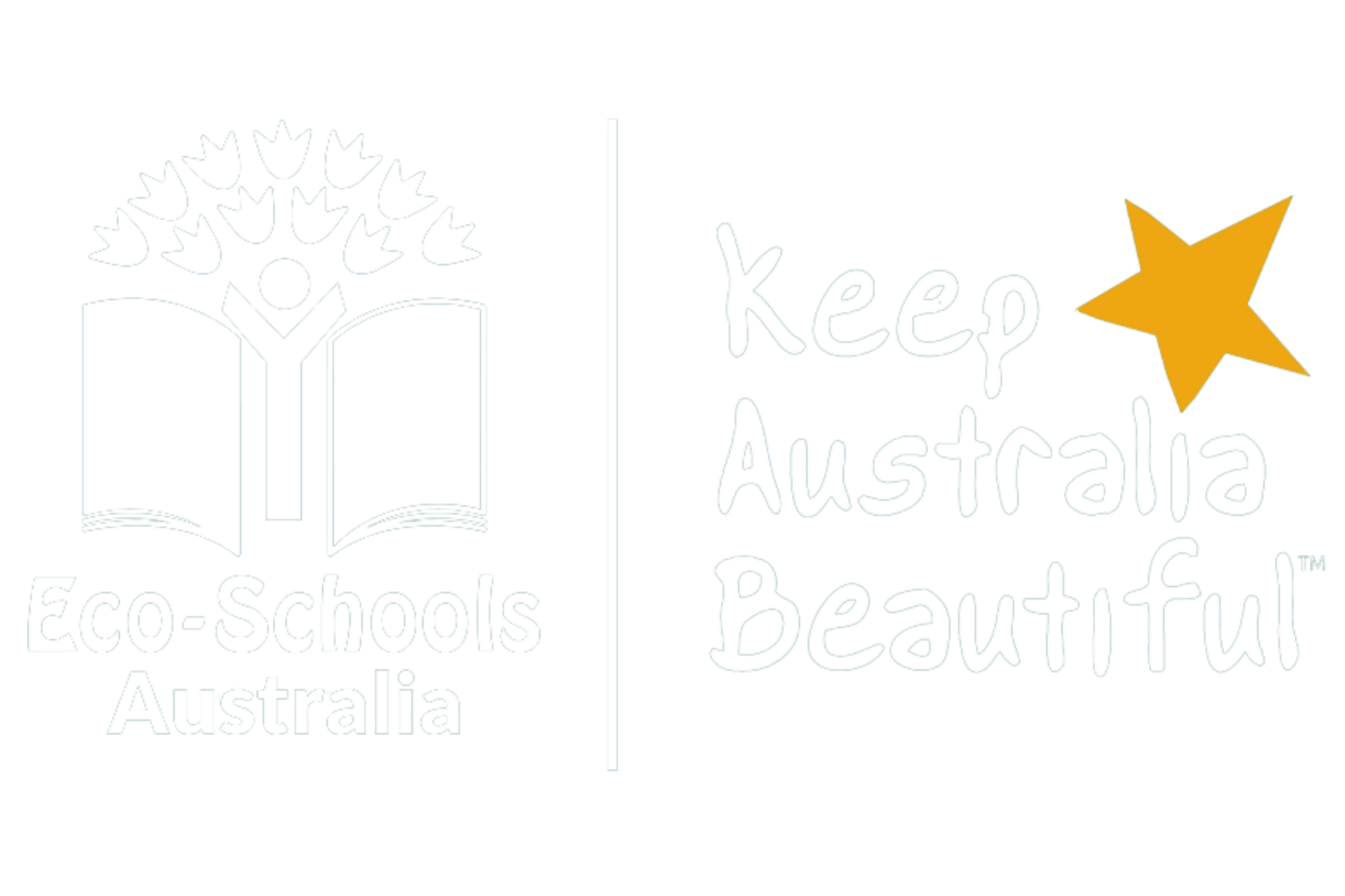
Overview

Eco-Schools is a proven schools-based sustainability education framework operating in 74 countries globally and developed by the Foundation for Environmental Education (FEE), based in Denmark. It is a curriculum-linked, democratic and participatory program that provides an excellent opportunity for students to experience active citizenship in their schools. Both schools and the wider community benefit from this program.
Eco-Schools follow 7 Steps to investigate and take action on one or more of the Eco-Schools 7 Themes.
When a school has worked through each of the 7 Steps, for at least 3 Themes, they can then apply for Eco-Schools Green Flag accreditation. The Eco-Schools Green Flag is international and recognised by organisations such as UNESCO. It is a symbol of a school’s commitment to environmental education. You can find out more about the Eco-Schools Green Flag and other Eco-Schools awards by clicking this link.
Why Eco-Schools?
Eco-Schools makes working on sustainability practical and fun and is motivational for students and teachers. Environmental issues such as climate change, biodiversity loss or plastic pollution are large global issues and the thought of tackling them can sometimes be overwhelming. Many of those interested in promoting education-based eco-action will wonder:
How and where do I begin?
How can I involve and engage young people?
How can I retain focus and momentum?
How can we have a positive impact on issues so numerous, overwhelming and global such as the climate crisis or marine plastic pollution???
The Eco-Schools program provides a solution to all these questions. Our Seven Step Framework has been designed as a very simple environmental management system that empowers young people to introduce and lead environmental actions and education in their school and beyond!

The Eco-Schools program aims to place young people at the heart of environmental action. Our Seven Step framework supports young people of all ages and abilities to work together to plan, deliver, monitor and evaluate environmental actions in their school.
Participating in the program:
-
Engages young people in important environmental issues.
-
Demonstrates to pupils that environmental actions can be enjoyable, social and rewarding.
-
Teaches responsibility and generates a sense of community.
-
Teaches negotiation, collaboration and leadership skills.
-
Develops the skills and knowledge young people need to play an active role in protecting our environment now and throughout their lifetimes.
-
Empowers students with the belief that they can have a positive impact on our planet.
-
Prepares students for STEAM careers through project-based learning.
-
Creates a brighter future for the world students are growing up in!
Eco-Schools is a great approach to integrating sustainability into KLAs, improving the school grounds, getting the local community involved and creating a positive school image!
Eco-Schools:
-
Consume less water,
-
Use less energy and
-
Produce less waste
Creating financial savings for schools!
Although, focussing only on the above examples, or financial savings, would fail to recognise the true impact and benefits of the Eco-Schools program:
-
The growth of a community of thousands of schools and students who have engaged with Eco-Schools over the past 25 years.
-
The increased green spaces.
-
The improved biodiversity.
-
The benefits to mental and physical health of participants.
-
The multiple unique environmental actions and projects they have planned and delivered.
-
The friendships made.
-
The behaviours changed.
-
The confidence gained by the thousands of individuals who have worked through each of the Eco-Schools seven steps.

